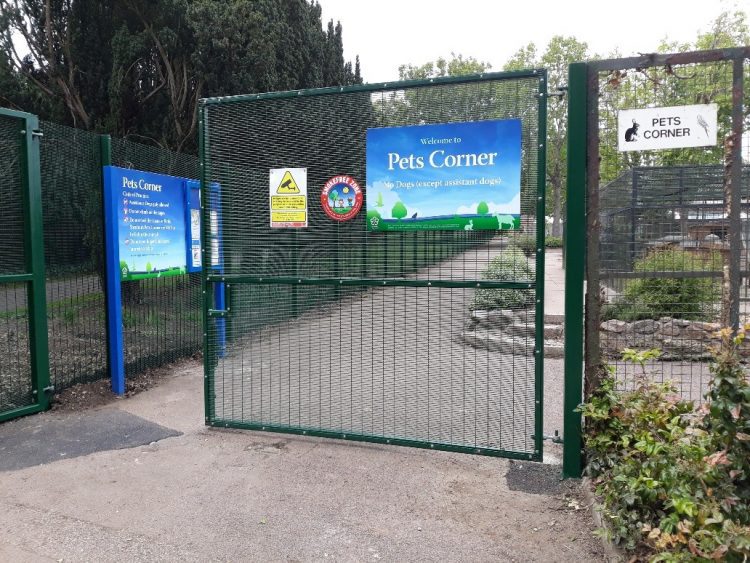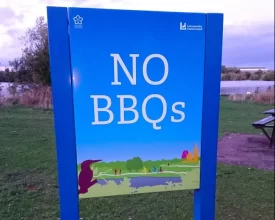Abbey Park’s Pets’ Corner has temporarily closed to the public as part of efforts to limit the spread of avian flu.
Following confirmation from the Animal & Plant Health Agency that the virus has been detected in wild fowl found dead in Abbey Park and Watermead Park, Leicester City Council closed its visitor attraction yesterday (Monday, August 15).

By closing Pets’ Corner to the public, the council will reduce the number of people accessing the area and ensure that clothing, footwear and equipment are thoroughly cleaned and disinfected to avoid any possible contamination.
Posters have also gone up in Leicester’s parks and open spaces, informing people that bird flu has been detected in the area and asking them to contact the Department for Environment, Food and Rural Affairs (DEFRA), if they spot dead birds in Leicester’s parks and waterways.
People should not touch any sick or dead birds, or pick up wild bird feathers. Instead, anyone who finds dead swans, ducks, geese, or other dead wild birds, such as gulls or birds of prey, should report them to the DEFRA helpline on 03459 33 55 77.
Deputy city mayor Cllr Piara Singh Clair said: “With avian flu now present in Leicester, we’re asking members of the public to be extra vigilant.
“People can help by reporting any sightings of dead birds, and by making sure that they comply with DEFRA’s regulations, if they keep birds at home.
“Closing Pets’ Corner is a temporary measure, and we look forward to reopening our popular family attraction as soon as it’s safe to do so.”
Leicester’s director of public health Professor Ivan Browne said: “Avian flu is primarily a disease affecting birds and the risk to the general public’s health is very low.
“You do not need to stop enjoying Leicester’s beautiful parks and green spaces, but if you see a dead or sick bird, please do not touch it or go near it but call the DEFRA helpline to report it as soon as possible.
“There is a very low food safety risk from avian flu and properly cooked poultry and poultry products, including eggs, are safe to eat.”
An Avian Influenza Prevention Zone (AIPZ) is in force across the whole country.
This means that anyone keeping birds anywhere in Great Britain – whether they are pet birds, a commercial farm or just a few birds in a backyard flock – must follow strict biosecurity measures to limit the spread of the disease.
Further information and advice from DEFRA is available at www.gov.uk/bird-flu






